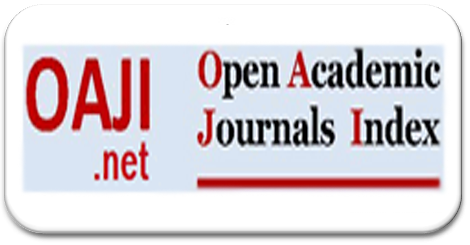Tarekat Shiddiqiyah dalam Masyarakat Jawa Pedesaan
Abstract
Keywords
References
Abd Syakur, Disertasi, “Gerakan Kebangsaan Kaum Tarekat: Studi Kasus Tarekat
Shiddiqiyah Pusat Losari, Ploso, Jombang Tahun1975-2006, Yogyakarta: UIN Sunan Kalijaga, 2008.
Ahmad Syafi‟i Mufid, Tangklukan, Abangan, dan Tarekat, Jakarta: Yayasan
Obor, 2006.
Alwi Shihab, Islam Sufistik, Islam Pertama dan Pengaruhnya Hingga Kini di Indonesia, Bandung: Mizan, 2001.
Endang Turmudi, Struggling for the Umma Changing Leadership Roles of Kiai in
Jombang, East Java, Australia: ANU E-Press, 2006 .
Hasan, Sudirman, dalam http://sudirmansetiono.blogspot.com/2009/05/origin-of-tarekat-sidiqiyya.html
Bruinessen, Martin van,. "Pesantren and kitab kuning: maintenance and continuation of a tradition of religious learning", in: Wolfgang Marschall (ed.), Texts from the islands. Oral and written traditions of Indonesia and the Malay world [Ethnologica Bernica, 4]. Berne: University of Berne, 1994.
-----, “Tarekat Qadiriyah dan Ilmi Syeikh Abdul Qadir Jeilani di India, Kurdistan
dan Indonesia,” dalam Ulumul Qur’an vol. 2 No. 2. Jakarta: LSAF, 1989.
Hamid Nasuhi, “Tasawuf dan Gerakan Tarekat di Indonesia Abad 19,” dalam Amsal Bakhtiar, Tasawuf dan Gerakan Tarekat, Bandung: Angkasa, 2003.
Julia Day Howell, “Sufism and the Indonesian Islamic Revival”, The Journal of Asian Studies 60, no. 3, August 2001.
Karel A Steenbrink, Beberapa Aspek Islam di Indonesia Abad ke -19, Jakarta: Bulan Bintang, 1984.
Martin van Bruinessen, "Origins and development of the Sufi orders (tarekat) in Southeast Asia", Studia Islamika, , vol. I, no.1, 1994, Jakarta: Pusat Studi Islam dan Budaya, 1994.
Sehat Ihsan Shadiqin, “Fatwa Sesat dan Pentingnya Dialog,” Harian Serambi
Indonesia, 3 Desember 2009.
-----Tasawuf Aceh, Banda Aceh: Bandar Publishing, 2008.
Simuh, Tasawuf dan Perkembangannya di Indonesia, Jakarta: Rajawali Press,
Zamakhsyari Dhofier, Tradisi Pesantren, Studi Tentang Pandangan Hidup Kiai,
Jakarta: LP3S, 1985.
DOI: http://dx.doi.org/10.22373/substantia.v14i2.4879
Refbacks
- There are currently no refbacks.
Copyright (c) 2012 Sehat Ihsan Shadiqin

This work is licensed under a Creative Commons Attribution-NonCommercial 4.0 International License.
SUBSTANTIA: JURNAL ILMU-ILMU USHULUDDIN
DITERBIKAN OLEH:
FAKULTAS USHULUDDIN DAN FILSAFAT
UNIVERSITAS ISLAM NEGERI (UIN) AR-RANIRY BANDA ACEH, ACEH INDONESIA
ALAMAT REDAKSI:
Gedung Fakultas Ushuluddin Lantai II, Fakultas Ushuluddin, UIN Ar-Raniry, Jln. Lingkar Kampus, Kopelma Darussalam Banda Aceh, Aceh 23111.Telp. (0651)7551295. eMail: substantia.adm@gmail.com

This work is licensed under a Creative Commons Attribution-NonCommercial 4.0 International License.


.png)




















